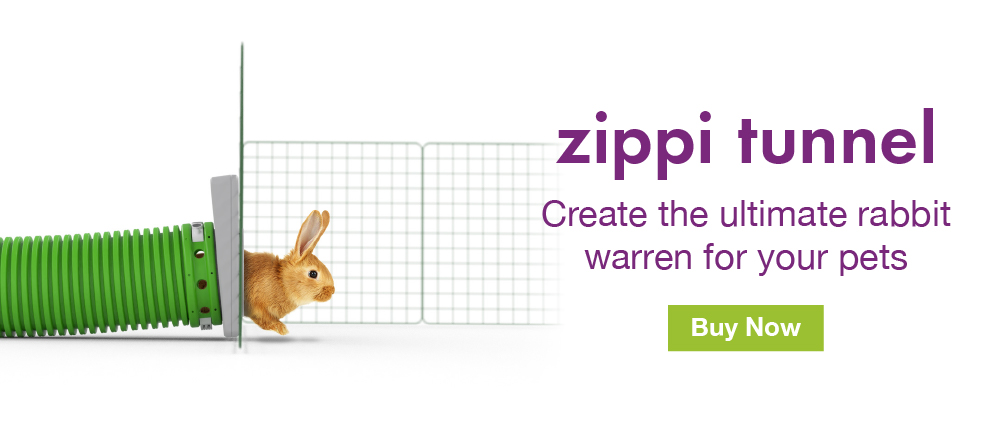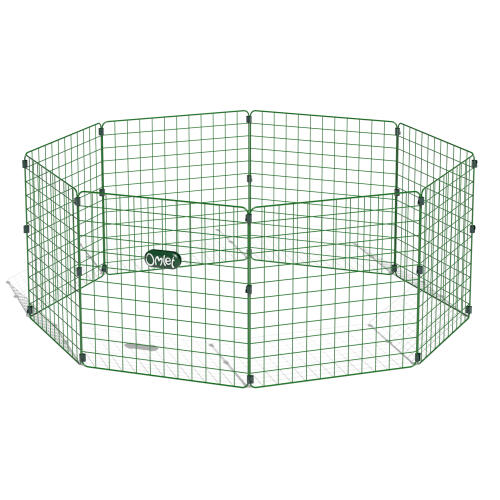Hopefully your rabbits will be at peak health most of the time, but sometimes something can go wrong. To limit the risk to your pets, it is advised that you do a quick health check up each day, as well as a more thorough check once a week. In summer it is advised to perform these checkups more often as flystrike can be a real threat during this season.
Once you get to know how your pets look normally, it won’t be hard to spot a problem. You won’t be able to diagnose all rabbit health problems, but the following list will give you a good idea of what to look out for. Whilst it’s not a full list, it is a very good starting point.
Prevention is the most important thing when it comes to rabbit health, you should try your best to provide them with a clean and healthy living space as well as providing them with a full diet that meets all their nutritional needs. There are a few big diseases that you should ideally vaccinate your rabbit against, myxomatosis for example. It is advised that you ask your vet for more information on what vaccinations are available.

A healthy Polish Dwarf rabbit
Abscesses
Abscesses are caused by bacteria. The result is swellings that are filled with pus and may be warm. Abscesses aren’t life-threatening, but if left untreated they could cause a more serious infection. A vet will be able to safely lance, drain and dress it.
Allergies
Much like humans, rabbits can also suffer from allergies. If you notice that your rabbit has runny eyes and a runny nose, alongside periodical sneezing, then they could be allergic to something in their hutch. Sometimes bedding is the problem, try switching this out and monitor the situation. If this does not help, a trip to the vet may be in order. A vet can help find the source of the allergy and if needed can prescribe medication.
Bloat
Bloat is an extremely dangerous condition. If you notice that your rabbit’s stomach is firm and your pet is not moving, they may have bloat. It is caused by a problem in the digestive system that causes the animal’s stomach to fill up with gas. Immediate medical attention is needed or this ailment will prove fatal.
Bladder Stones
This is a painful condition. The first telltale signs of bladder stones are blood in the rabbit’s urine, squeaking in pain as they urinate or if they don’t urinate at all. A vet will be able to treat this. In female rabbits, womb cancer can also produce the first symptom.
Cataracts
Just like humans, rabbits can also develop cataracts. This is a problem with the eyes that hinder eyesight. If you notice that your rabbit’s eye has developed a white patch, it is most likely a cataract. There isn’t really much need to operate as this is a natural part of rabbits getting older.
Coccidiosis
Coccidiosis is a condition caused by a liver parasite. If left untreated it can prove to be fatal. Some symptoms of coccidiosis are diarrhoea, weight loss, a swollen stomach, lethargy, a lack of appetite and jaundice. This illness also happens to be very infectious, so if you think that one of your rabbits has come down with it they will need to be placed into quarantine.
Diarrhoea
If your rabbit has watery, non-pellet stools that don’t clear up after feeding them just hay and water for a day, then a trip to the vets is necessary. If the diarrhoea is more severe and is accompanied by your rabbit looking out-of-sorts, then a vet trip is required sooner. There are dozens of potential causes - you need a vet to identify the problem.
Flystrike
Flystrike occurs in the summer and is a very dangerous condition that can even be fatal. If your rabbit’s rear end isn’t kept clean during this season, flies will see it as an ideal place to lay their eggs. Within a day of the eggs being laid, the larvae will hatch and burrow into the rabbit. This is extremely painful for the rabbit and they will unfortunately have to be put to sleep by a vet. Making sure that both your rabbit and their enclosure are clean, and making sure that the rabbit’s diet isn’t too rich are ways of preventing this ailment.

Water is vital to general rabbit health
Hair Loss
There are a number of possible reasons that your rabbit is losing hair, from over-grooming to a mite infestation. Take a good look at the bald patches, if there is any white or brown material, or if your rabbit is scratching a lot, it is most likely mites. Another potential cause is that a fellow rabbit is doing a bit more grooming than is necessary. If you suspect that this may be the case, observe your rabbits to find out.
Heatstroke
If your rabbit is lying down and hyperventilating, and it’s very warm, then it may be suffering from heatstroke. If this is the case, move your rabbit into a shady and cool place and try wiping them down with a damp towel. If this doesn’t seem to alleviate anything, a trip to the vet may be in order.
Injury
Less severe injuries such as small cuts and nicks can be treated at home. If your rabbit has somehow managed to injure itself a bit more severely, a vet will need to treat the wound.
Myxomatosis
Myxomatosis (also sometimes simply called “Myxi”) is a virus that was originally introduced by humans in Australia in a bid to control the feral rabbit population. If you have ever come across a wild rabbit that has swollen eyes and doesn’t run away from you, chances are it has myxomatosis.
Myxomatosis is spread by insects and through contact with another carrier. Because of this the disease can travel long distances without being detected. Nowadays it is present in all parts of the world. Keeping your rabbit’s enclosure clean is a good way of minimising the chances of your bunnies coming down with it, as it will keep away insects which could potentially be carrying the disease.
It is strongly advised that you vaccinate your rabbits against myxomatosis, as there is no cure for it and infected rabbits can either be put down or face a long and painful death. Vaccination is quick and relatively cheap, usually around $30 per rabbit.
Overgrown teeth
Just like almost every other rodent, a rabbit’s teeth never stop growing. Instead they need to be able to wear them down regularly to keep them at a normal length. Signs that your rabbit may have overgrown teeth are that they stop eating and may dribble and have sores around their mouth. A vet will be able to wear down their teeth if needs be.
Pneumonia
Pneumonia is caused by your rabbit getting either too cold or too damp. Telltale symptoms include uneven and heavy breathing, a hunched posture, sitting in a corner and a runny nose. Rabbits with pneumonia won’t eat much food either. This disease is serious and will need veterinary attention.
Snuffles
Snuffles is a broader term used to describe a variety of symptoms that your rabbit may have, such as a snotty nose, runny eyes, sneezing and wheezing. Regardless of what the exact symptoms may be, the cause is usually the same - bacterial infection. Your vet can give you an antibiotic to try and alleviate symptoms. Sometimes, however, the antibiotics will only mask the symptoms and they may return when the rabbit is stressed, or if they are unwell with another illness.

This Lionhead Rabbit is having her claws clipped by a vet
Sticky Bottom Syndrome
Sticky Bottom Syndrome occurs when the rabbit is producing too many caecotrophs (a particular type of dropping that rabbits re-digest). Caecotrophs are dark, look moist and are sticky so they can easily get stuck on the hairs around a rabbit's bottom, leaving it permanently dirty. The most likely cause is that the diet is too rich. The solution is to cut down on pellets or rabbit mix and increase the amount of hay (fibre) in the diet.
This condition could also occur if your rabbit has become overweight and it is unable to reach round to clean its fur. If you suspect this you should start to exercise your rabbit and adjust its diet. It's probably best to speak to a vet about this.
As soon as there is any sign of a sticky bottom, try to solve the problem as it can start to attract flies. This can not only make your rabbit's life unpleasant, but can ultimately prove fatal if flystrike occurs.
VHD (Viral Haemorrhagic Disease)
This is another disease that was introduced into wild rabbits as a way of controlling their numbers. It only appeared in Europe and the americas in the 1990’s, but it’s is just as nasty as Myxomatosis. Annual vaccination is the best weapon against this disease. VHD is an incredibly quick disease; if your rabbit does contract it there will probably not even be enough time to take it to a vet.
Worms
Worms can set up home in your rabbit - you may notice them in your rabbit’s droppings, or around it’s anus. A rabbit-friendly wormer will rid your pet of them.
Womb Cancer
Womb cancer is extremely prevalent in female rabbits who are over the age of four or five. This is one of the many reasons that most owners choose to get their rabbit neutered. If your pet’s wee has blood in it, this could be a symptom of womb cancer, amongst many other health problems. It’s best to take your pet to the vet.







Comments
Tob675, 7 December 2011
a very good webstite all true things thanks for helping me to save my rabbit best web in the world